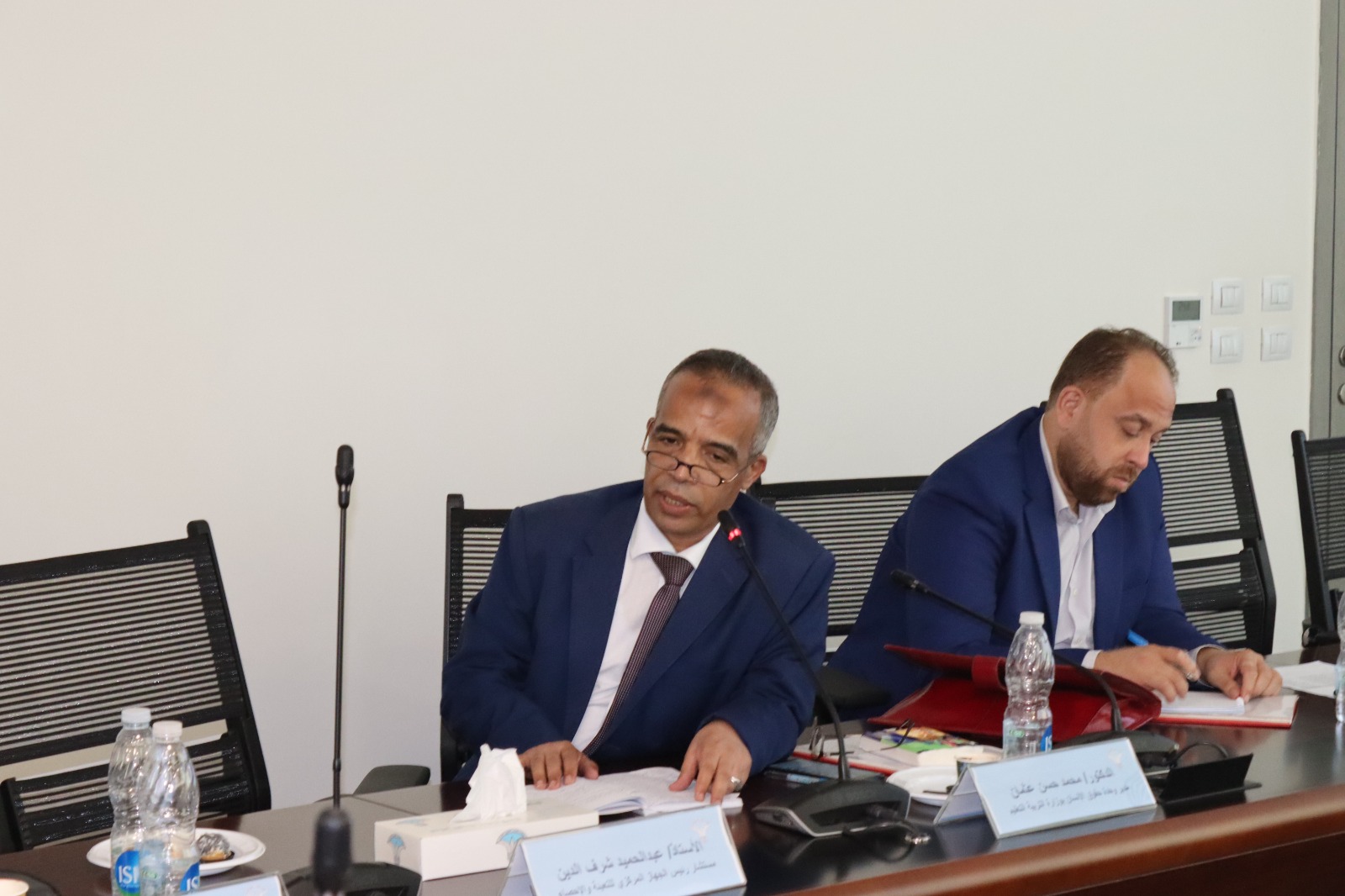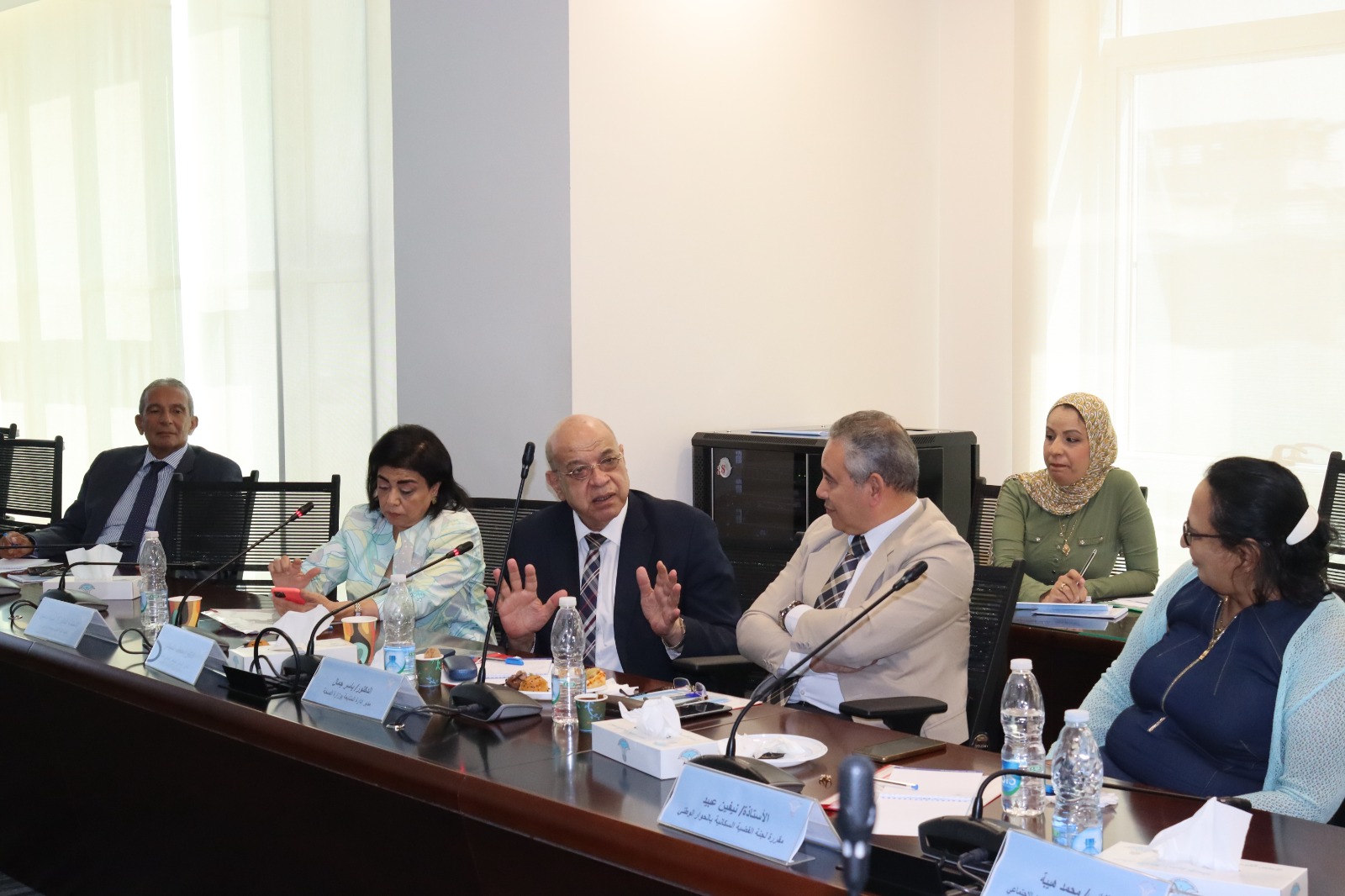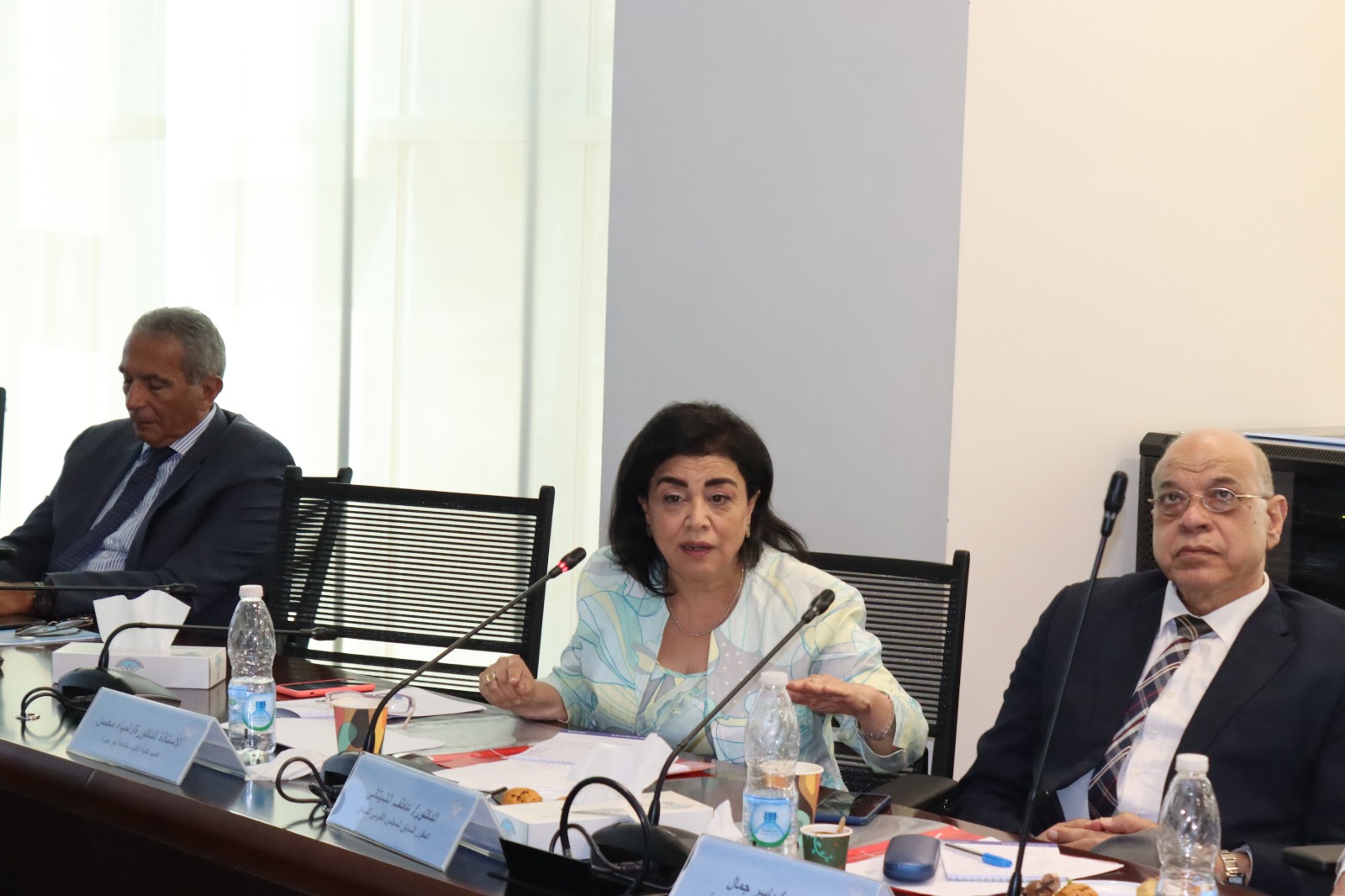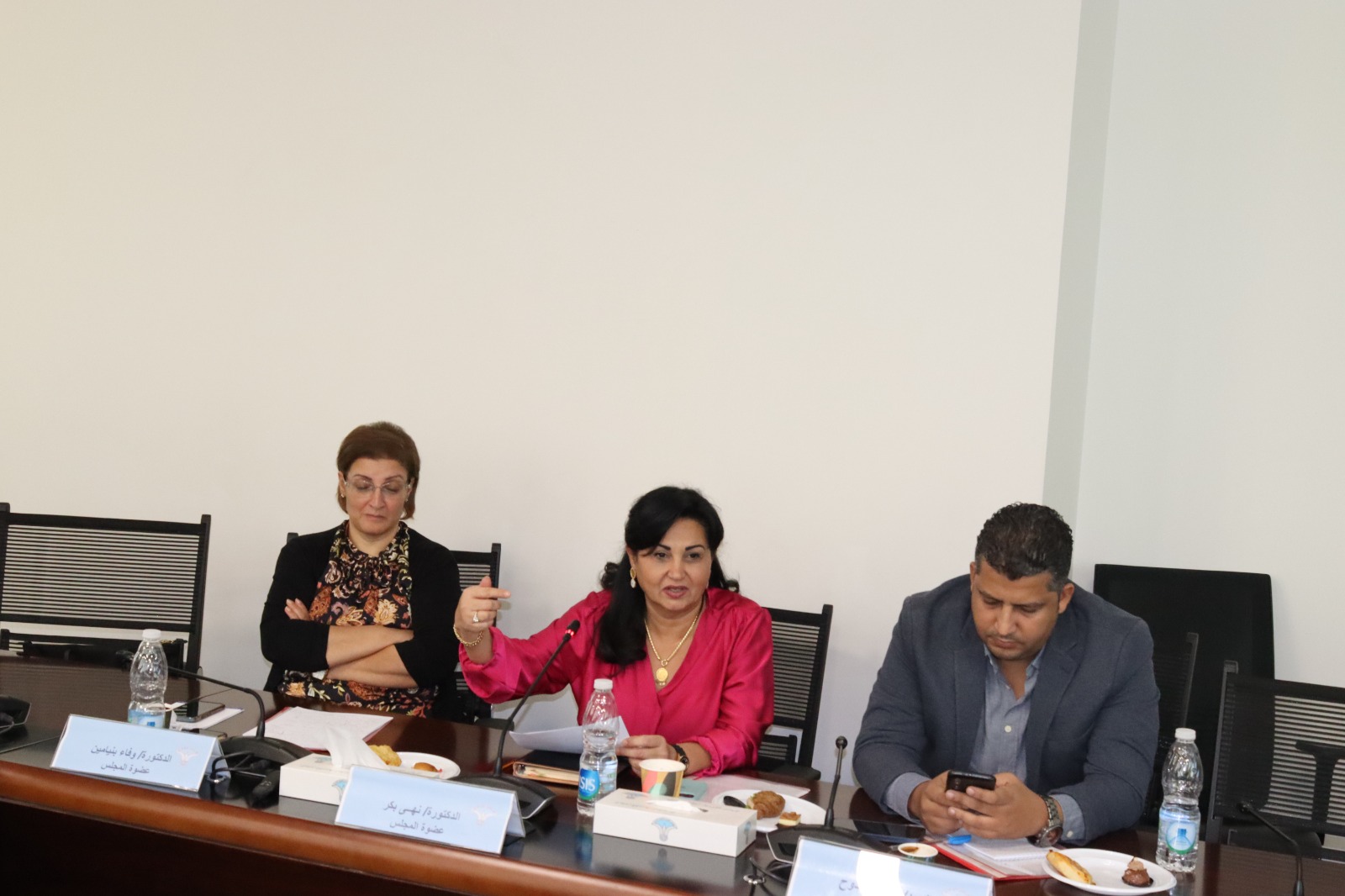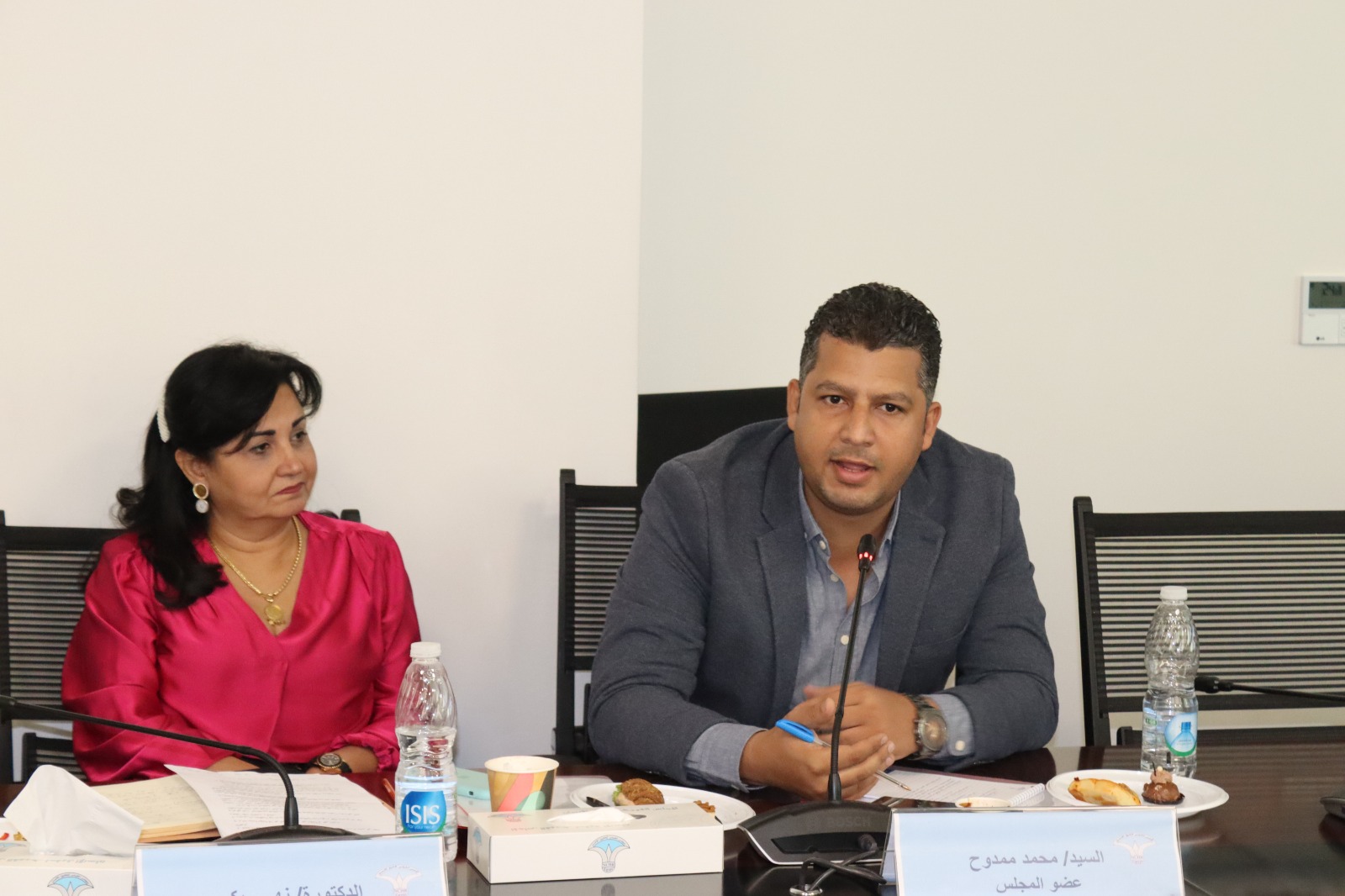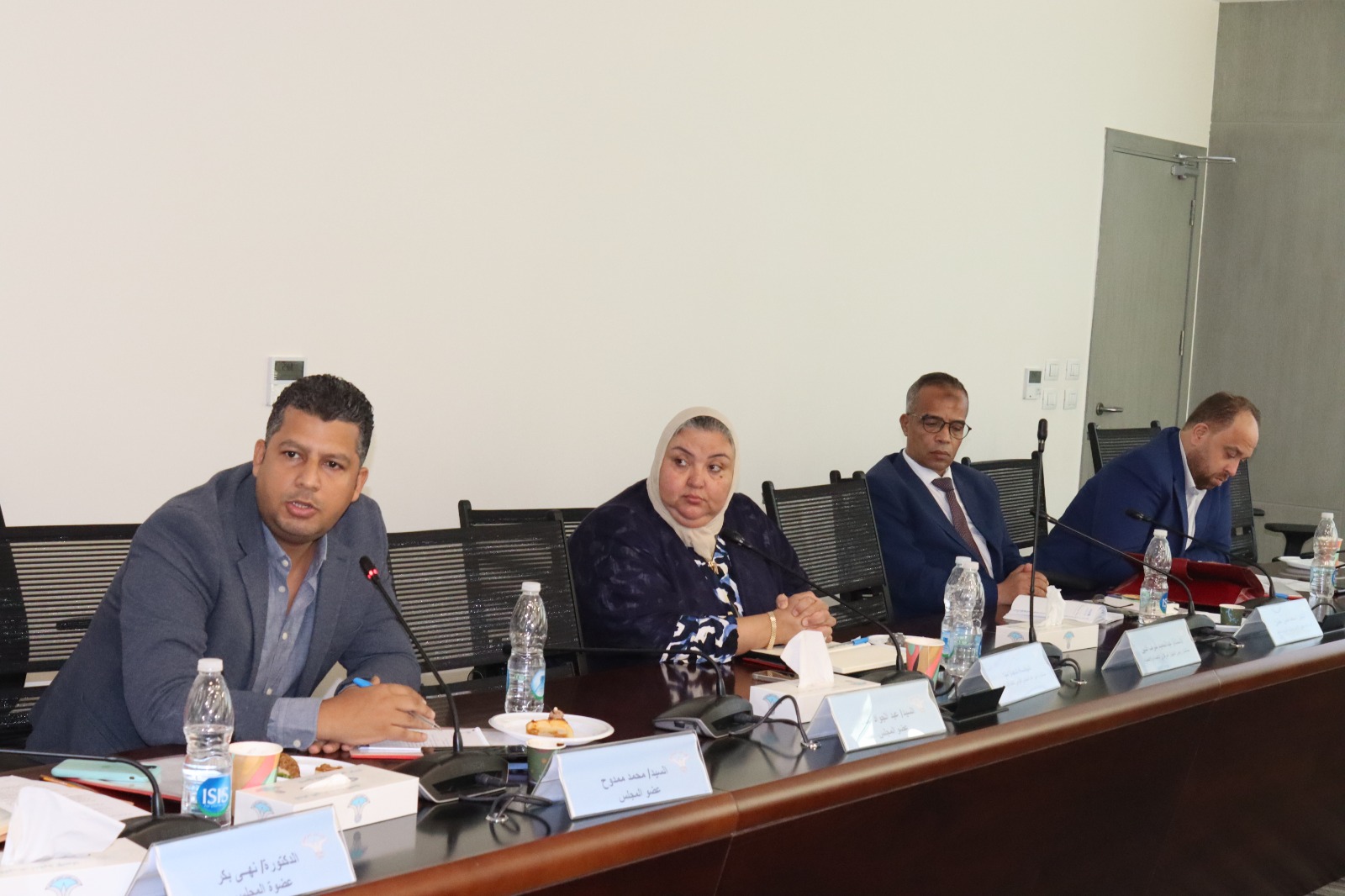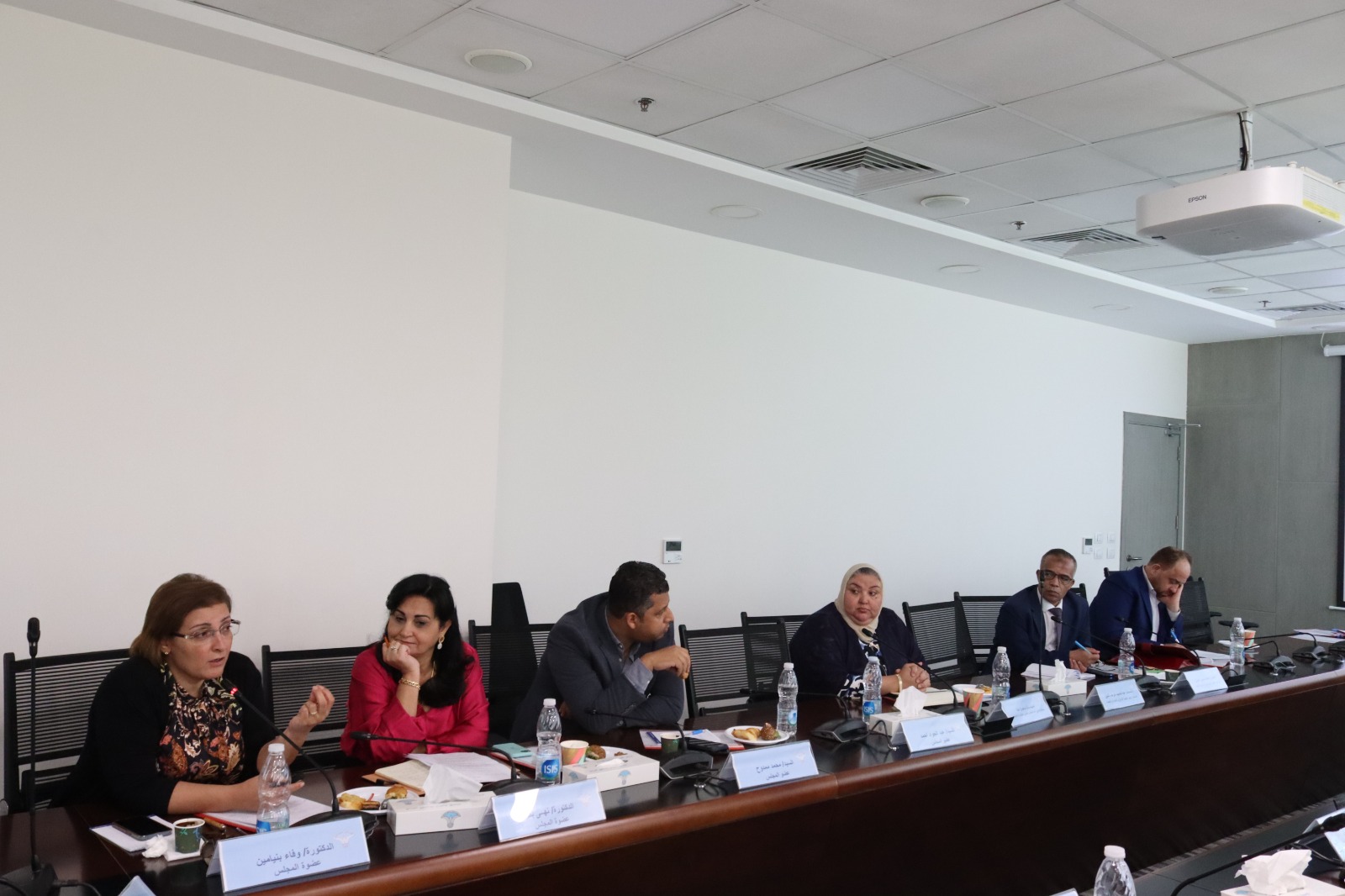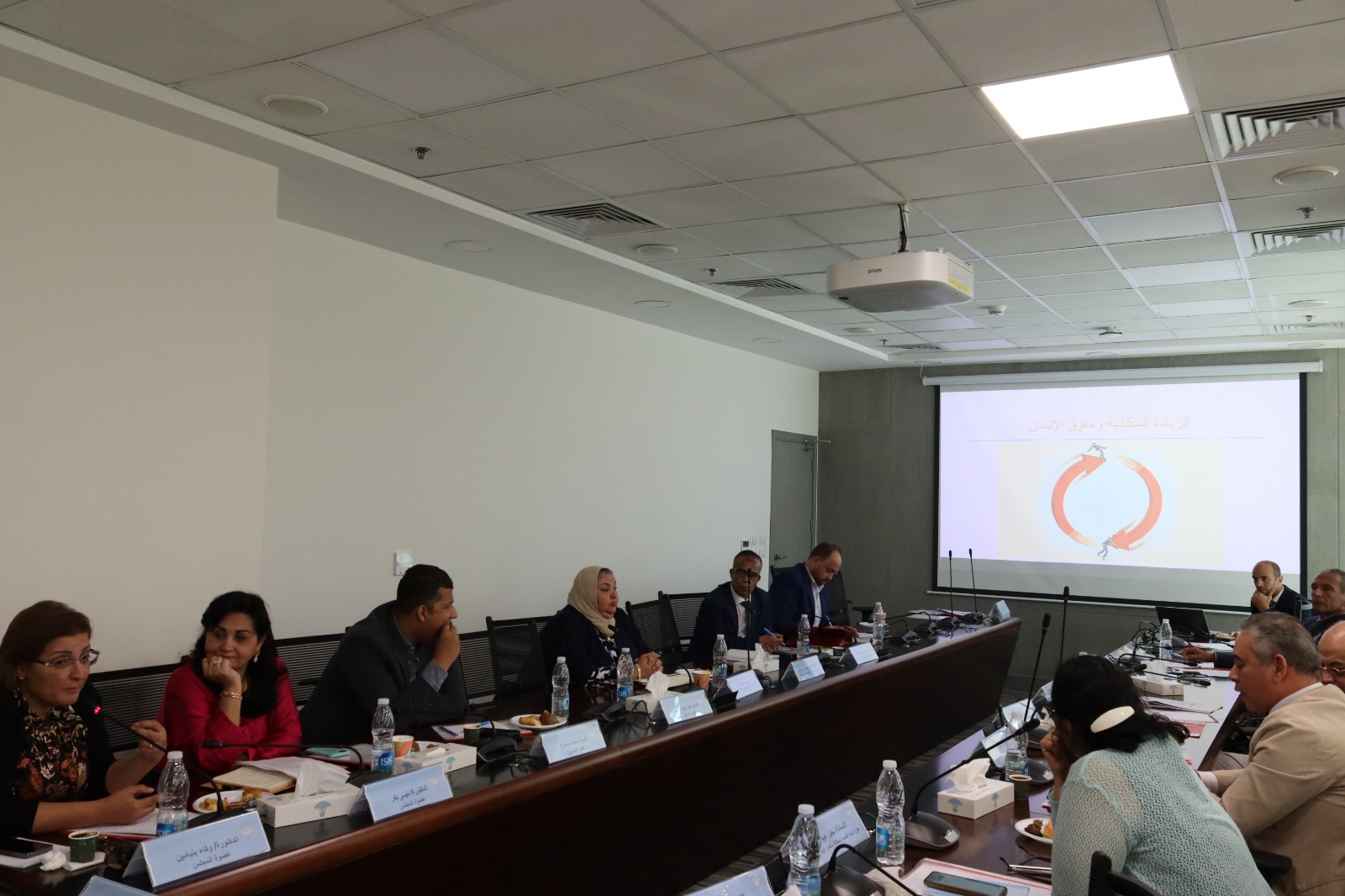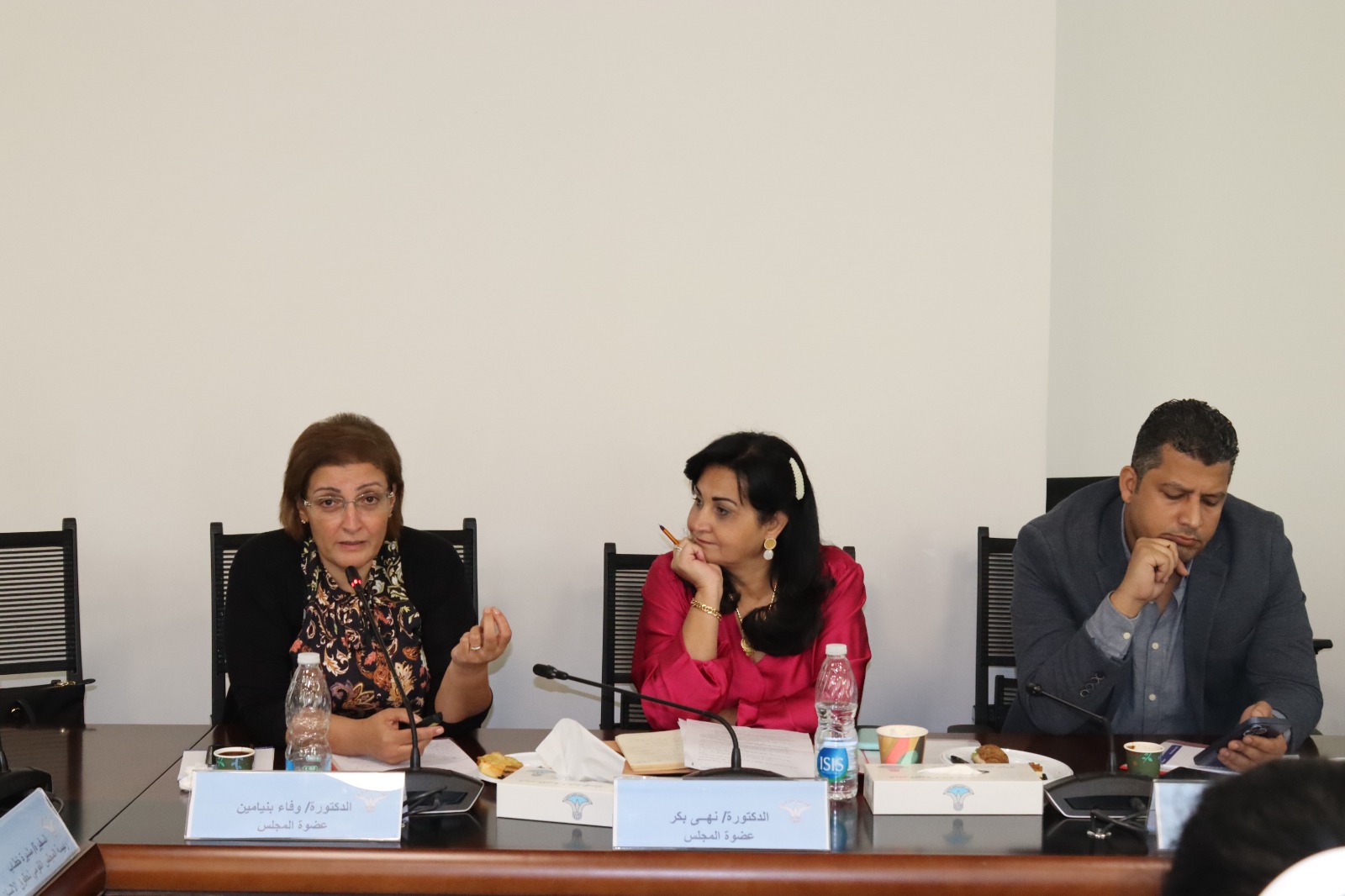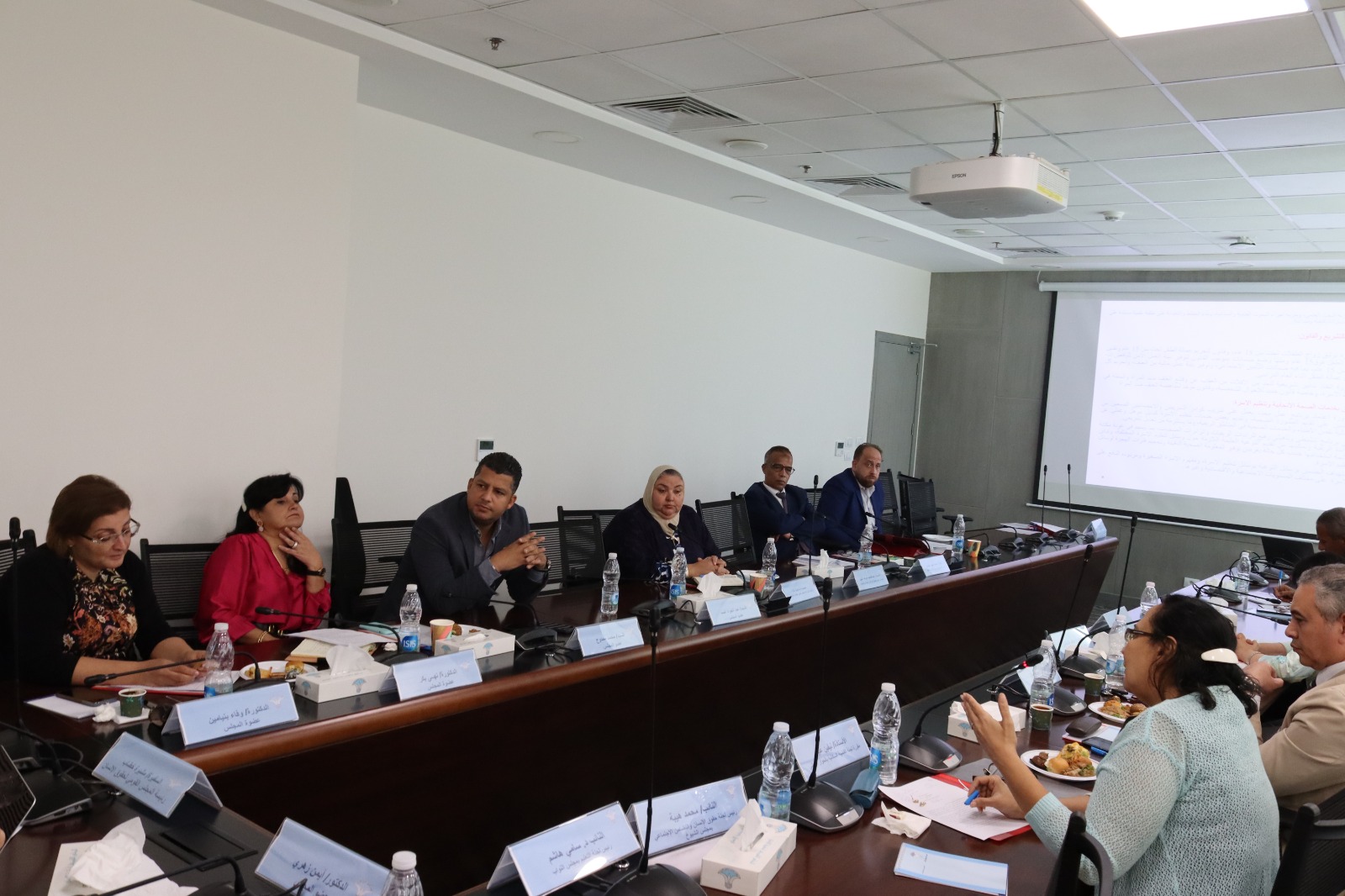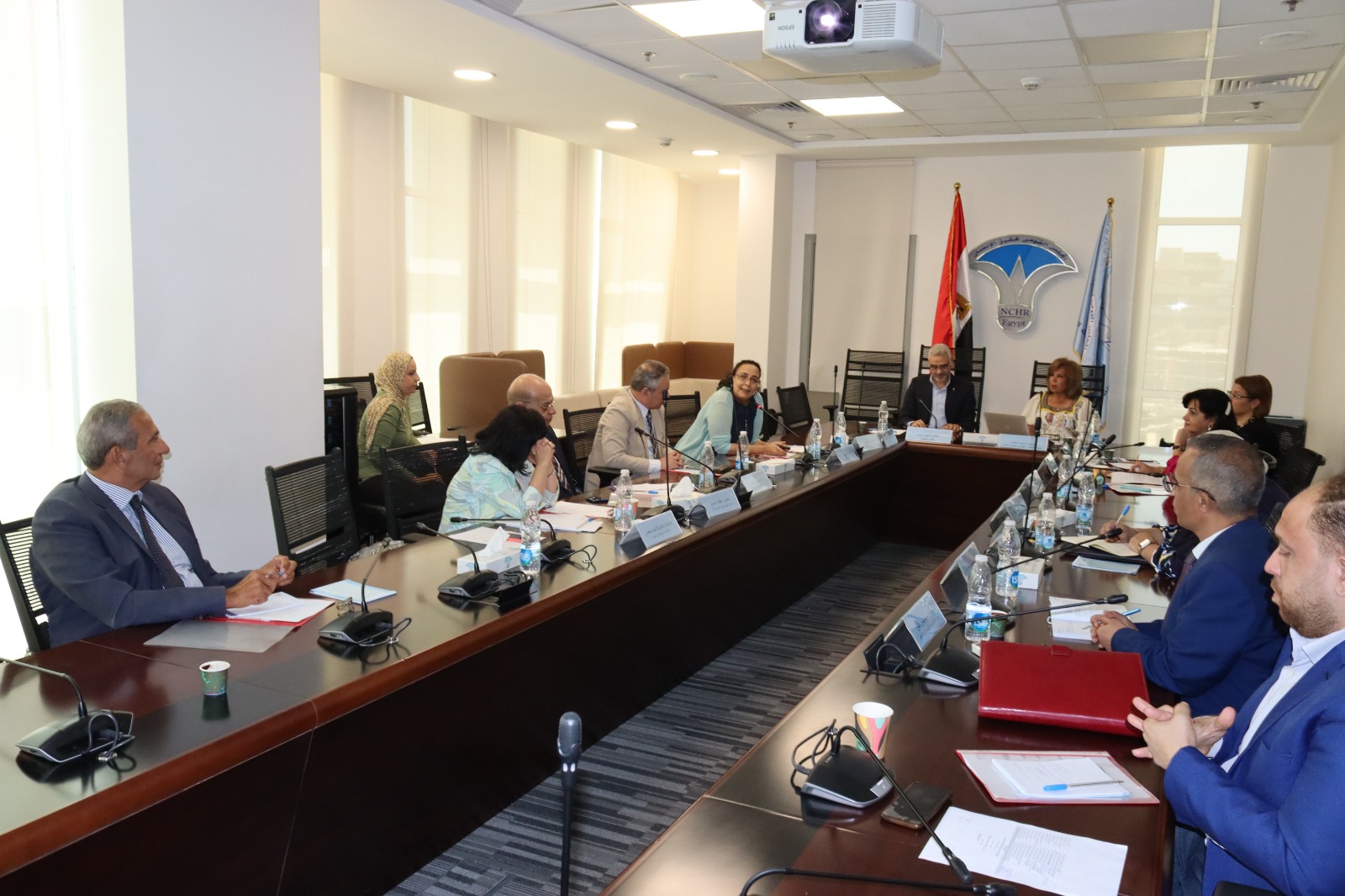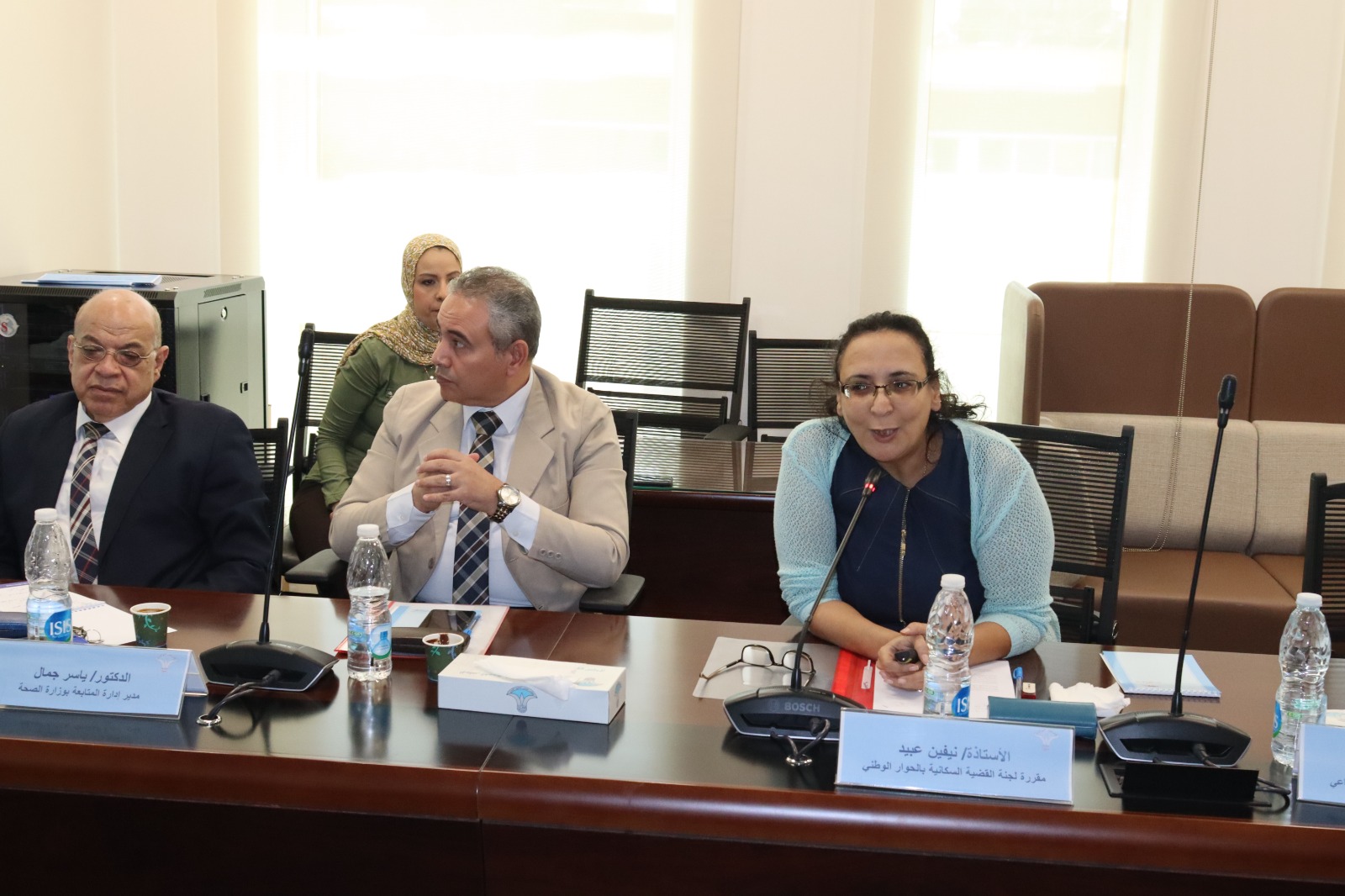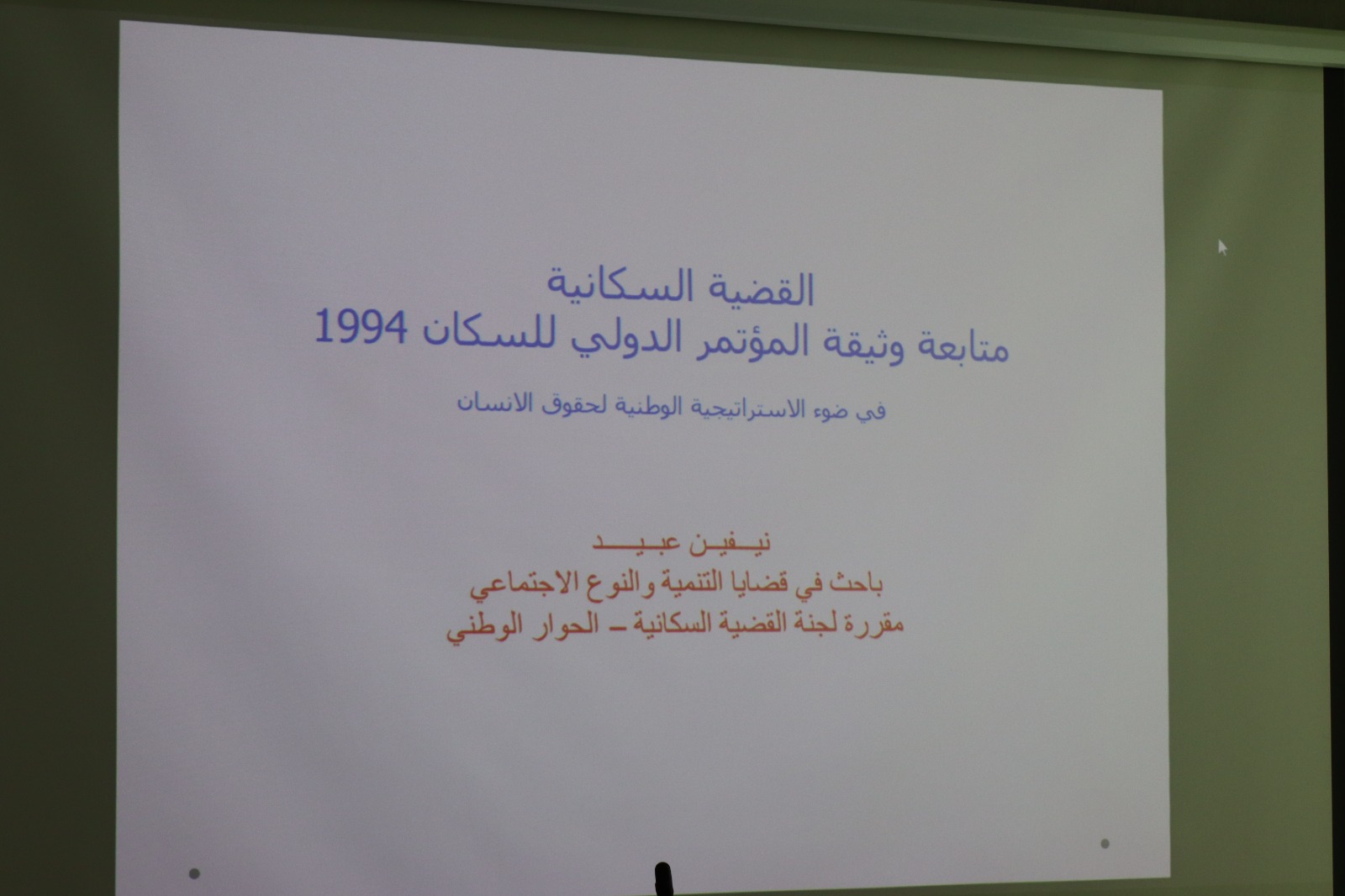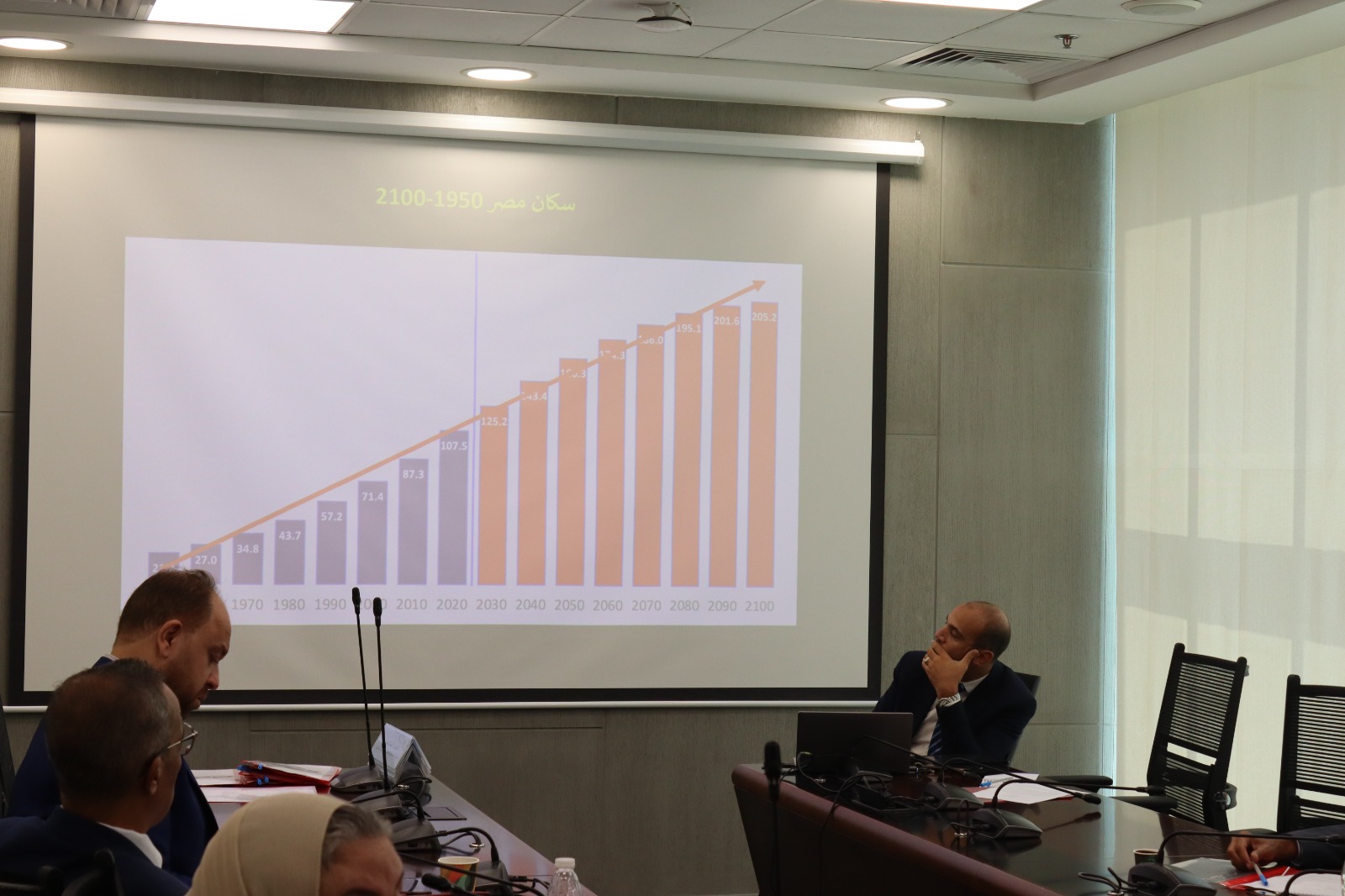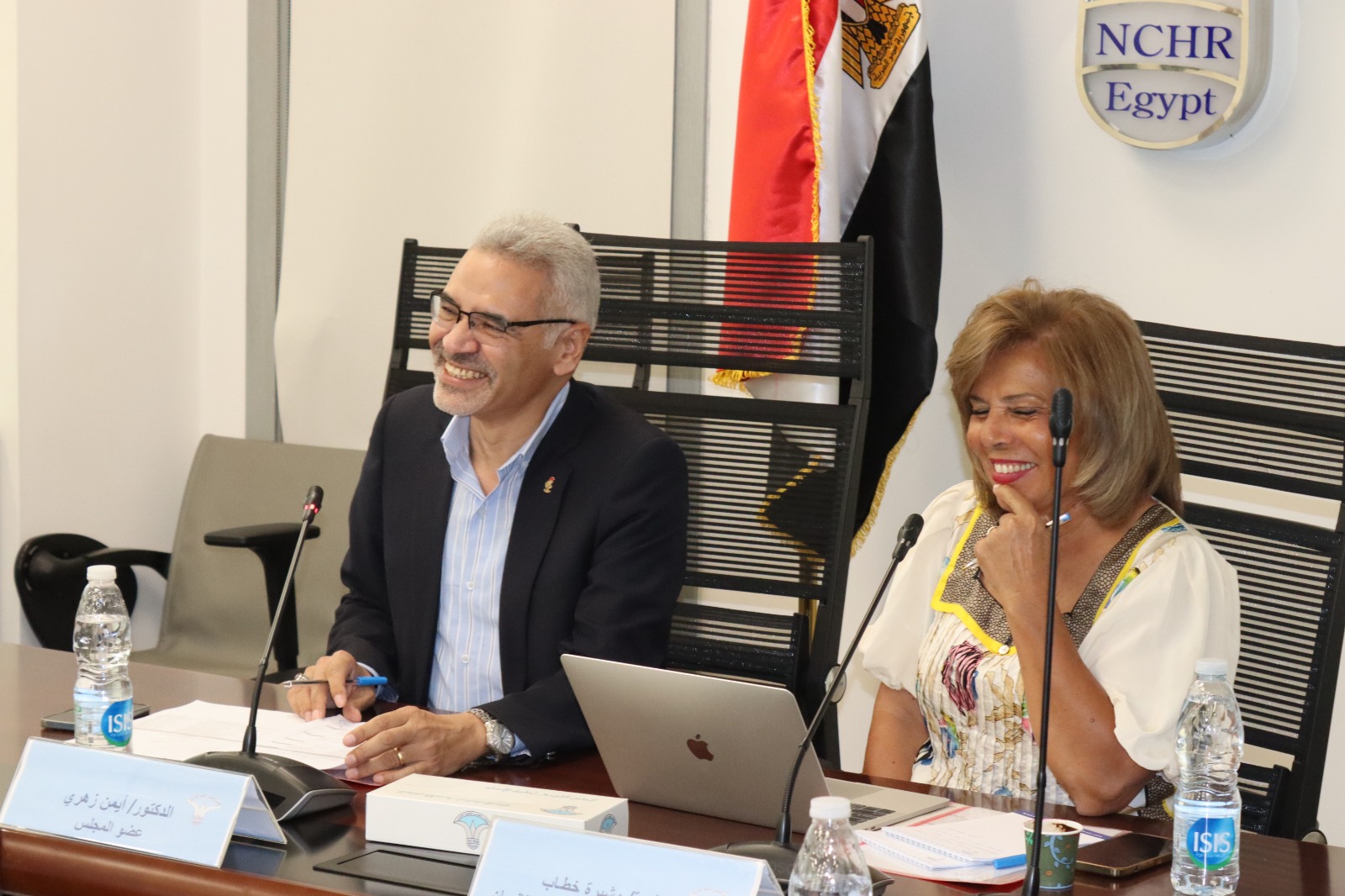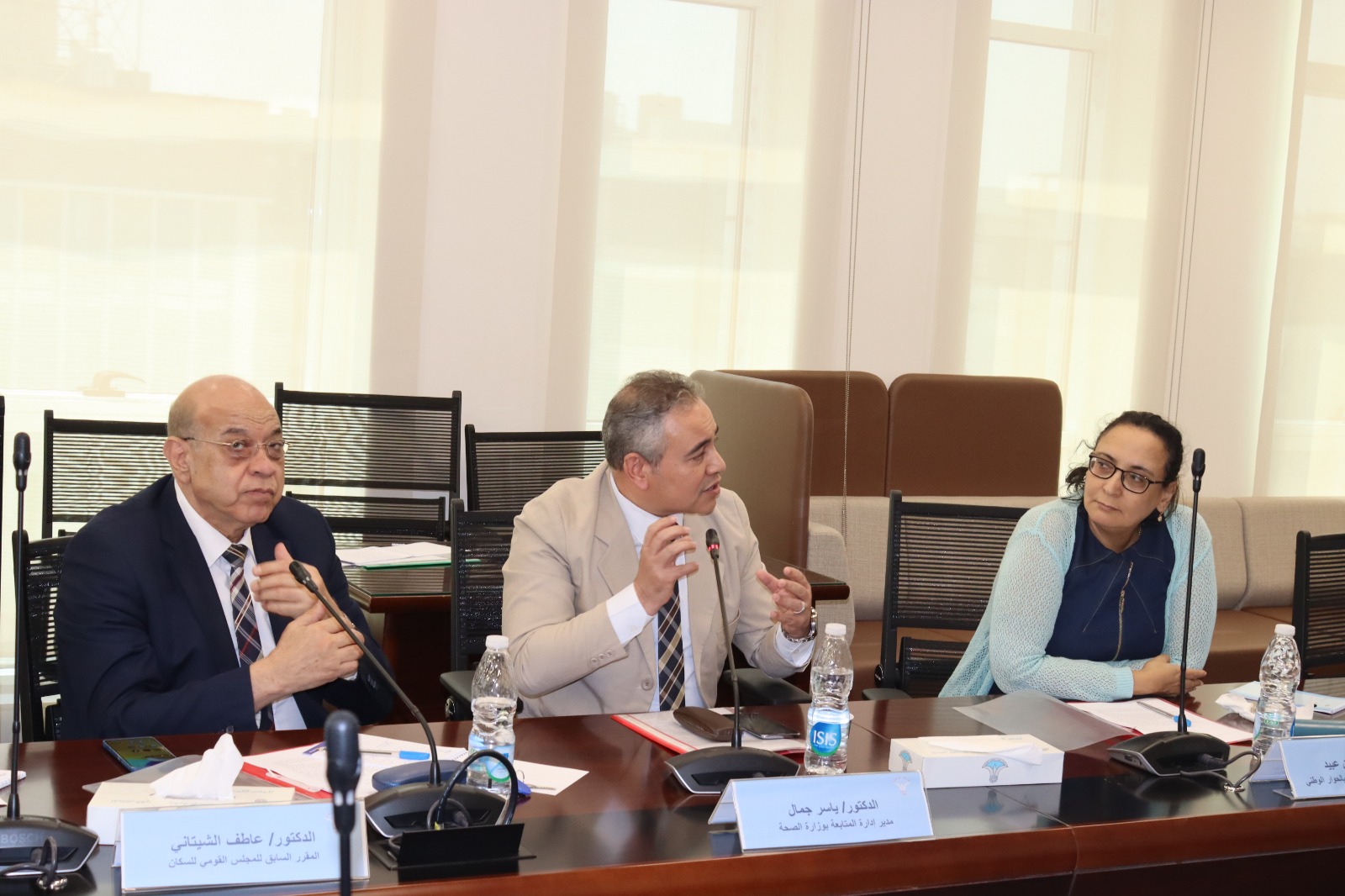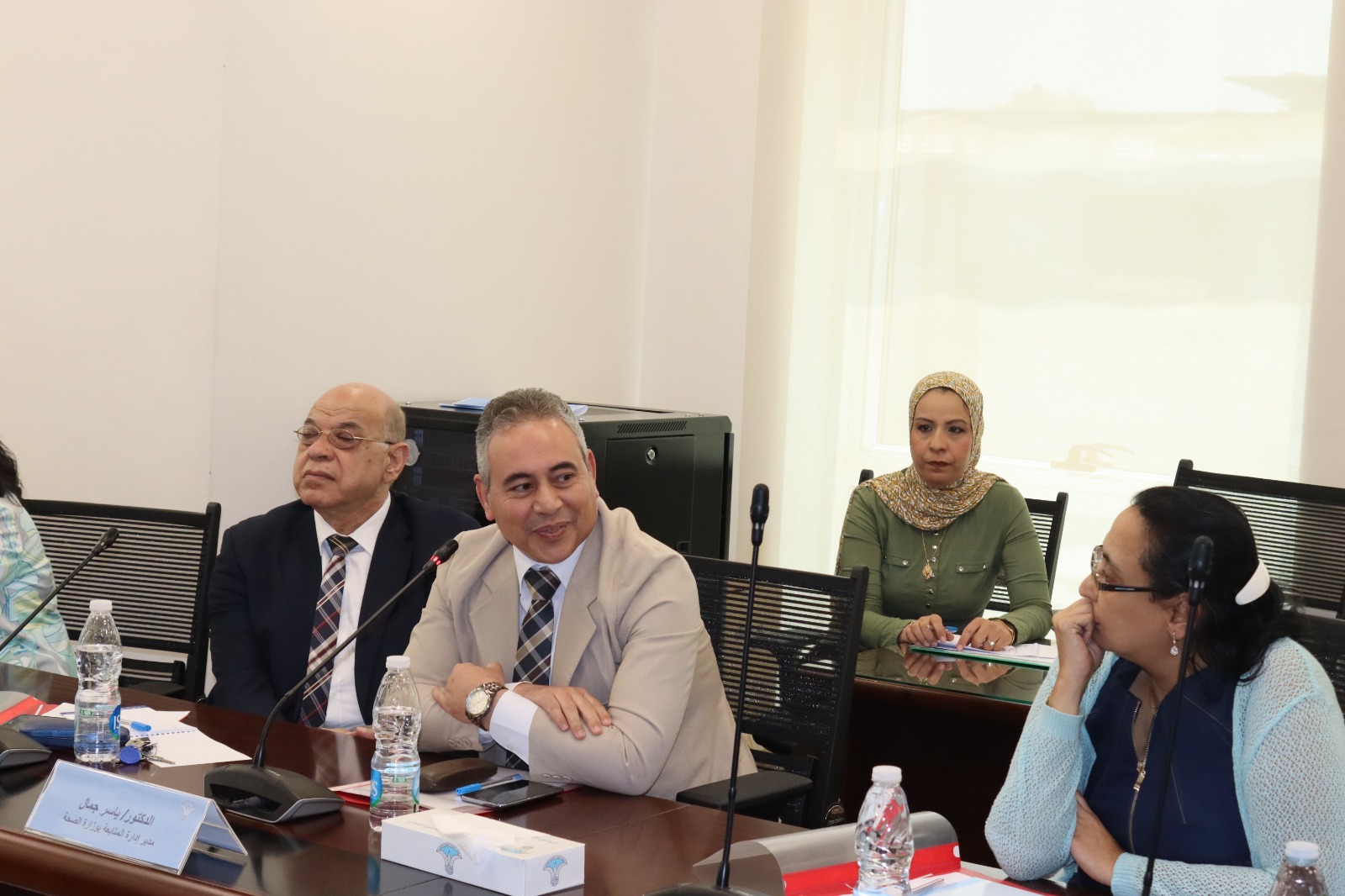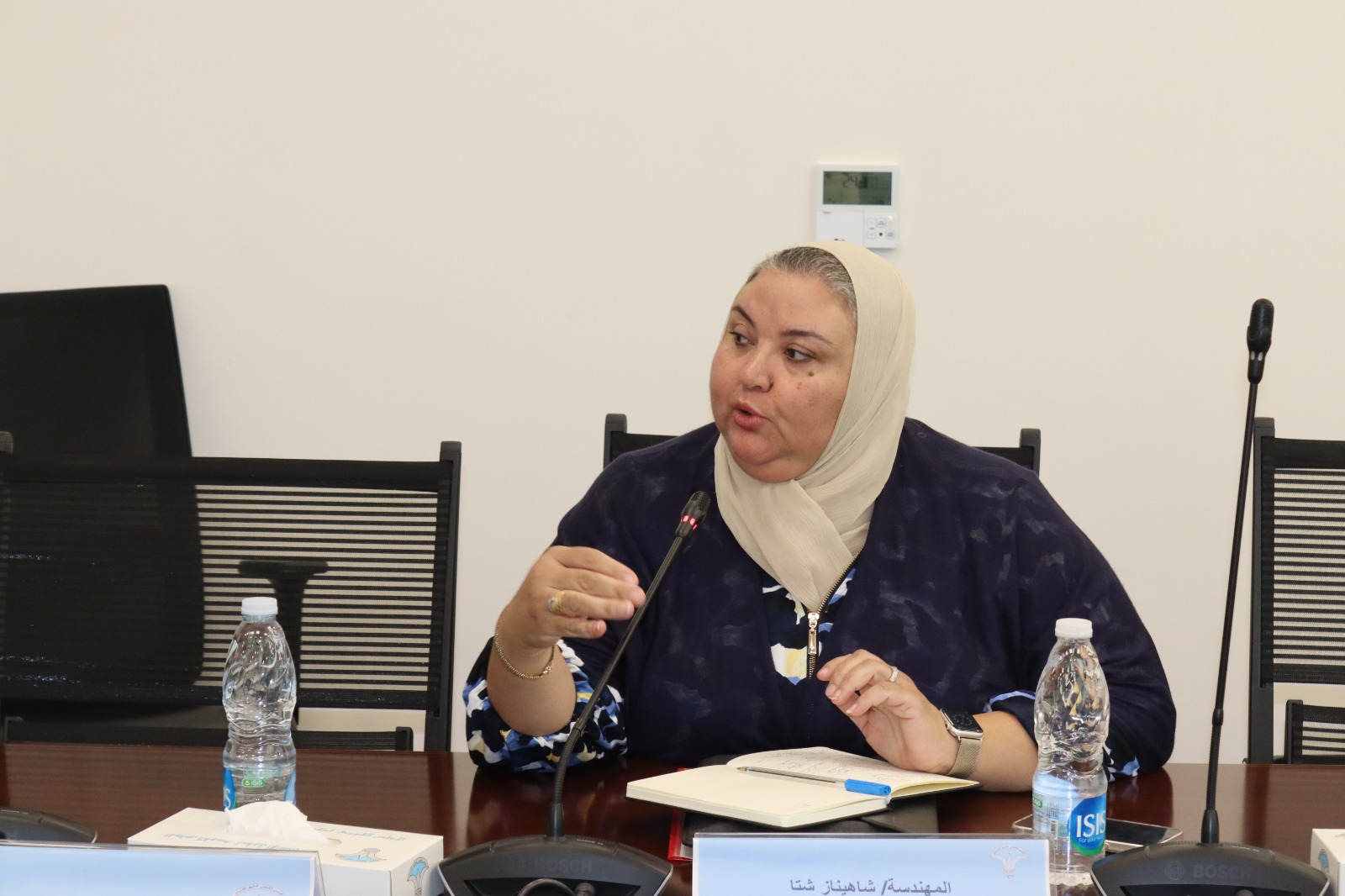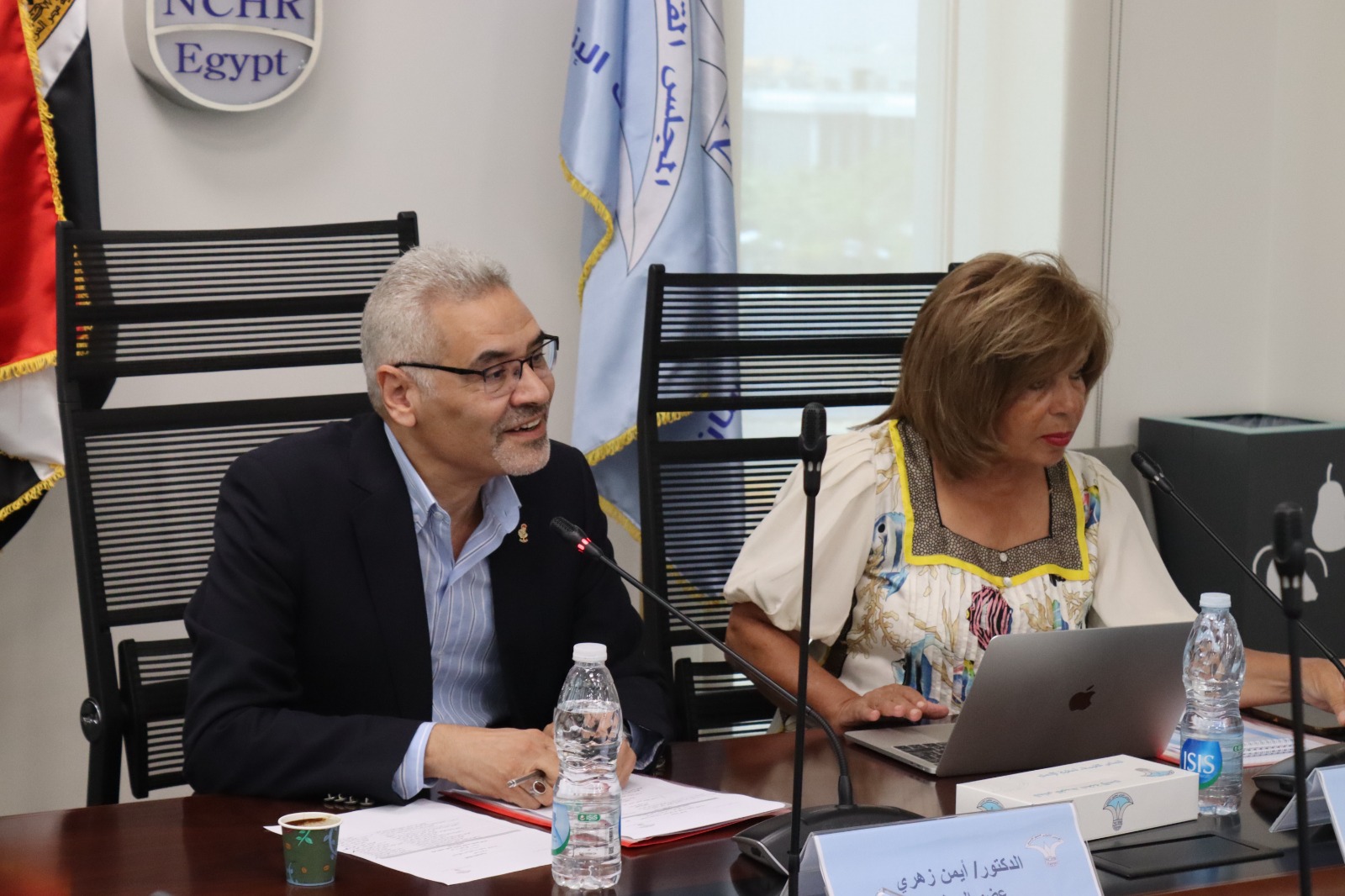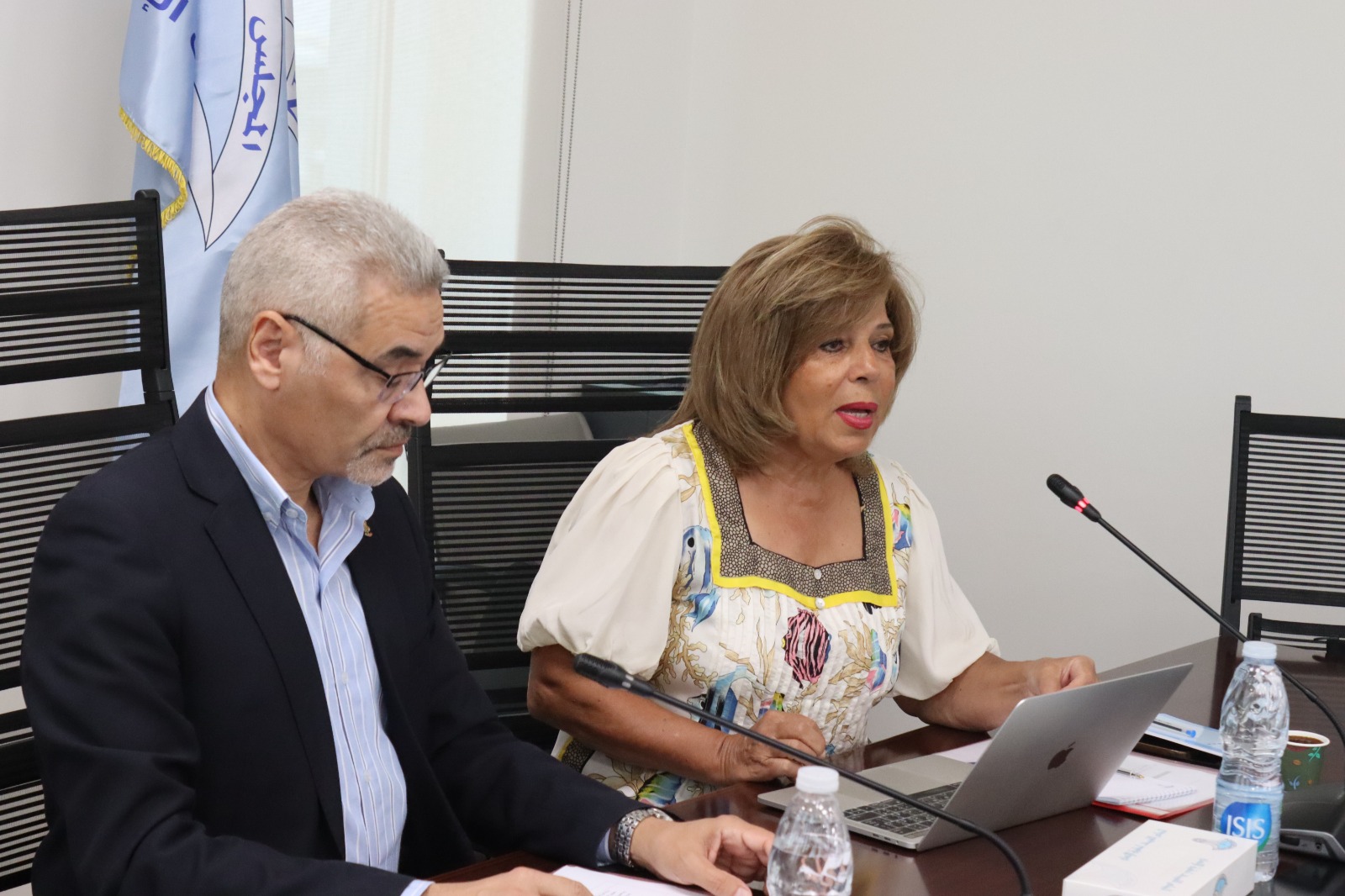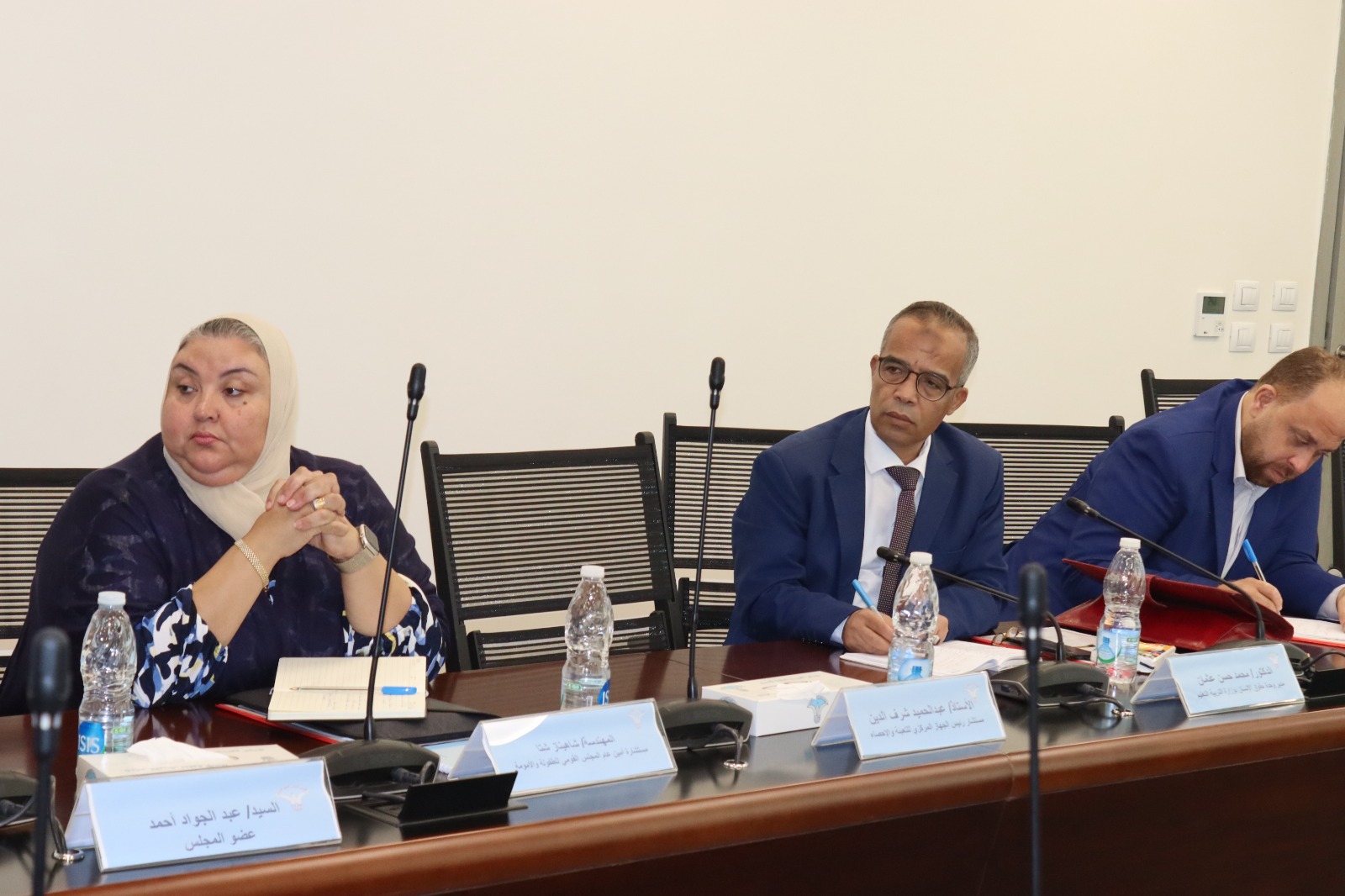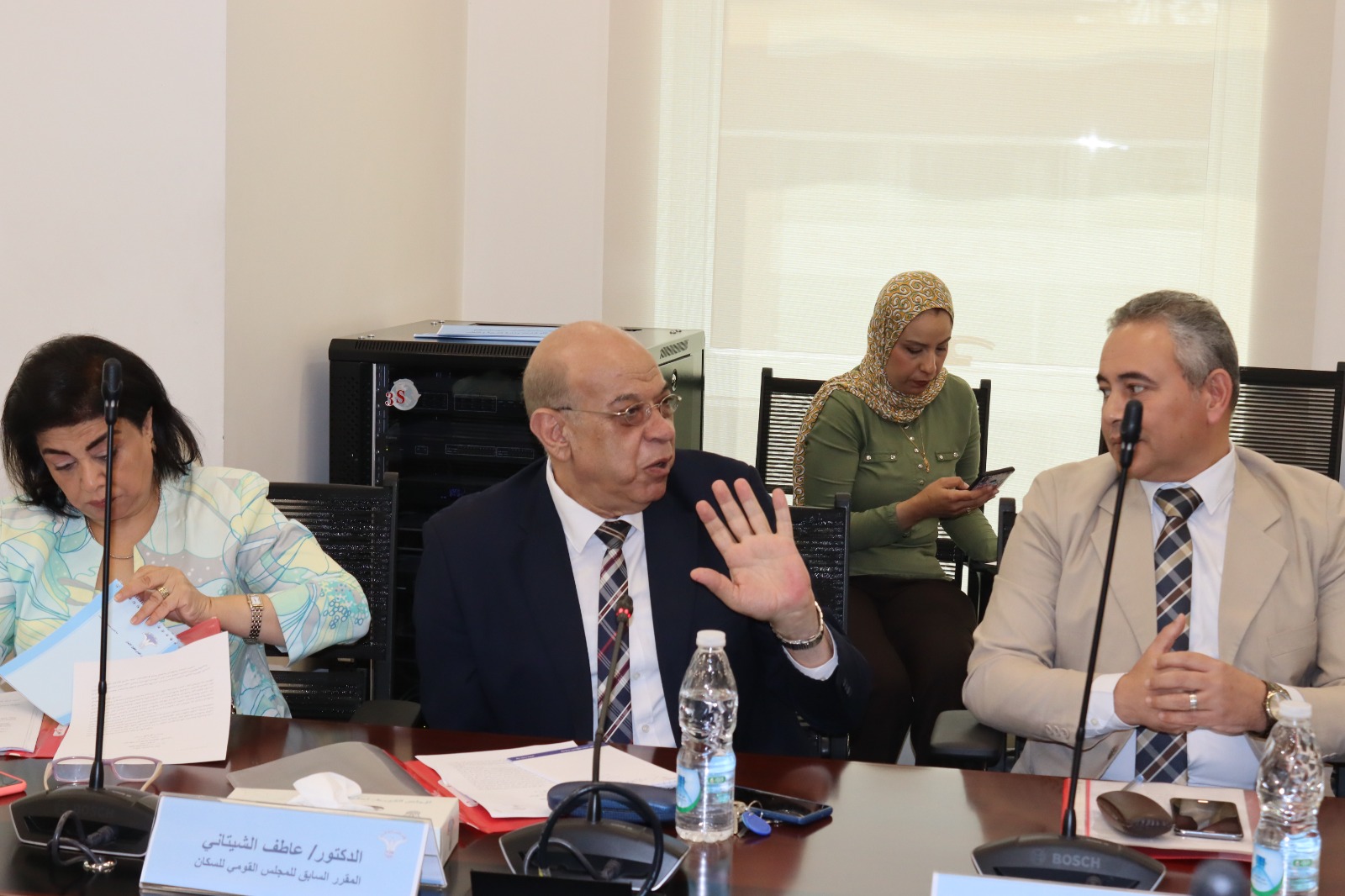Mushira Khattab: Population growth in its current form represents a flagrant violation of human rights and represents a burden on public services
The National Council for Human Rights (NCHR) held a panel discussion entitled “The Population Problem and Human Rights” on Saturday, September 2, 2023, at NCHR’s headquarters in the Fifth Settlement,
This is in preparation for and in interaction with the International Conference on Population, Health and Development, to be held under the auspices of the President of the Republic, from 5 to 8 September 2023, which comes as a renewal of Egypt’s commitments to fulfill the rights of its citizens and improve population characteristics, especially for the most vulnerable groups.
The discussion session was inaugurated by Ambassador Moushira Khattab, President of NCHR, who stressed that population increase in its current form represents a flagrant violation of human rights, especially the groups most in need of care, including children, youth, and females. It is one of the most prominent challenges that hinder the enjoyment of human rights and the provision of the necessities of a decent life. It also represents pressure on state services such as education, health, and all other services. She added that the population increase is concentrated in less fortunate families that deprive their children of education and throw them into the labor market. This deprives the child of his right to education, health care, and enjoyment of the highest possible level of school health services and social protection provided by the school. It results in many negative phenomena, such as high fertility rates, coupled with dropout from education, child labor, and increased rates of violence among children and early marriage, in violation of the law, which exposes the child to danger, violence, and exploitation in the labor market and leads to the phenomenon of unemployment.
Khattab added that the societal challenges resulting from the problem of overpopulation, which has become a major burden on the economies of developing countries, cannot be ignored. It leads to low productivity, and she added that NCHR has a vision to deal with that challenge in an effective economic and legal manner based on compensating the family for the income that the child brings and helping the state to improve the availability and quality of education provided to the groups most at risk, and that the International Labor Organization (ILO) presented a a developing country economic study from which countries benefited where this phenomenon is widespread. Dr. Ayman Zohri, a member of NCHR and rapporteur of the discussion panel, pointed out that the population problem is a disaster that must be dealt with quickly because it affects the country’s growth and development and the necessity of raising the marriage age, and working to increase community awareness of the problems that occur because of the population issue.
Dr. Nevin Ebeid, rapporteur of the population issue at the National Dialogue, for a legal vision in dealing with the challenge of population increase.
The participants emphasized that population increase is one of the most prominent challenges that increase poverty rates, in light of the steady increase in the population in Egypt. They explained that the governorates of the Republic with the highest population ratio are the poorest, which are the governorates of Upper Egypt, according to statistics issued by the Central Agency for General Mobilization and Statistics (CAGMAS).
The population increase imposes great pressure on the state's resources and hinders its efforts to achieve development, which makes it difficult to provide and accommodate the demands of the current population and threatens the future of future generations. It also includes a threat to social stability.
The members of NCHR who participated in the discussion activities were Mohamed Mamdouh, Chairman of the Economic Committee, Dr. Wafa Benjamin, Head of the Social Committee, Dr. Noha Bakr, Head of the Cultural Committee, and representatives of the Ministry of Education, the Ministry of Health and Population, the National Council for Childhood and Motherhood, and a group of professors and experts concerned with the population issue.
In this regard, NCHR will issue a report that addresses the relationship between the population problem and human rights and its negative effects, especially on economic and social rights, and its vision on the proposed solutions to address the population problem.





 English
English
 Arabic
Arabic
 French
French


